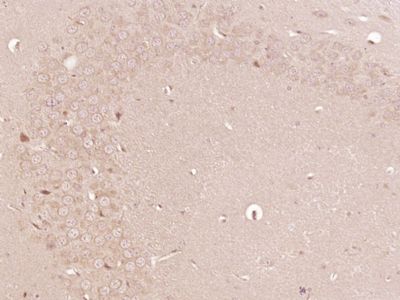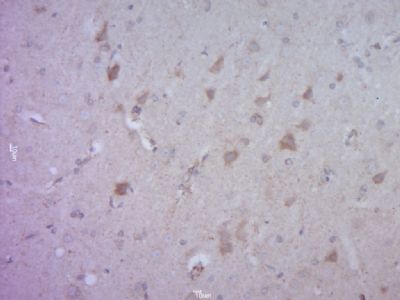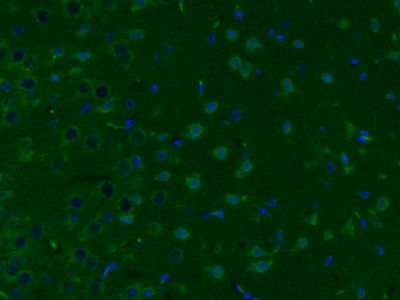产品中心
当前位置:首页>产品中心Anti-KLK8
货号: bs-5871R 基本售价: 780.0 元 规格: 50ul
- 规格:50ul
- 价格:780.00元
- 规格:100ul
- 价格:1380.00元
- 规格:200ul
- 价格:2200.00元
产品信息
- 产品编号
- bs-5871R
- 英文名称
- KLK8
- 中文名称
- 激肽释放酶8抗体
- 别 名
- Kallikrein-8; Ovasin; Serine protease TADG 14; Tumor associated differentially expressed gene 14 protein; Brain serine protease 1; BSP1; hK8; HNP; HPN; Kallikrein 8 (neuropsin/ovasin); Kallikrein related peptidase 8; Kallikrein8; KLK 8; KLK8; KLK-8; KLK8 protein type 1; KLK8 protein type 2; Neuropsin; neuropsin type 1; Neuropsin type 1, included; Neuropsin type 2; Neuropsin type 2, included; Neuropsin, mouse, homolog of; NP; NRPN; Protease serine 19; PRSS 19; PRSS19; Serine protease 19; Serine protease kallikrein; Serine protease kallikrein/ovasin/neuropsin; Serine protease TADG14; TADG 14; TADG14; Tumor associated differentially expressed gene 14.
- 规格价格
- 50ul/780元购买 100ul/1380元购买 200ul/2200元购买 大包装/询价
- 说 明 书
- 50ul 100ul 200ul
- 研究领域
- 肿瘤 细胞生物 免疫学 信号转导 细胞粘附分子
- 抗体来源
- Rabbit
- 克隆类型
- Polyclonal
- 交叉反应
- Human, Mouse, Rat, Dog, Pig, Cow, Horse, Guinea Pig,
- 产品应用
- ELISA=1:500-1000 IHC-P=1:400-800 IHC-F=1:400-800 IF=1:200-800 (石蜡切片需做抗原修复)
not yet tested in other applications.
optimal dilutions/concentrations should be determined by the end user.
- 分 子 量
- 28kDa
- 细胞定位
- 细胞浆 分泌型蛋白
- 性 状
- Lyophilized or Liquid
- 浓 度
- 1mg/ml
- 免 疫 原
- KLH conjugated synthetic peptide derived from human KLK8:51-150/260
- 亚 型
- IgG
- 纯化方法
- affinity purified by Protein A
- 储 存 液
- 0.01M TBS(pH7.4) with 1% BSA, 0.03% Proclin300 and 50% Glycerol.
- 保存条件
- Store at -20 °C for one year. Avoid repeated freeze/thaw cycles. The lyophilized antibody is stable at room temperature for at least one month and for greater than a year when kept at -20°C. When reconstituted in sterile pH 7.4 0.01M PBS or diluent of antibody the antibody is stable for at least two weeks at 2-4 °C.
- PubMed
- PubMed
- 产品介绍
- background:
Kallikrein 8 (hK8), also known as neuropsin, brain serine protease 1 (BSP1), tumor associated differentially expressed gene 14 (TADG14), PRSS19, HNP and ovasin, is a trypsin like serine protease. Originally described from mouse brain, KLK8 was implicated in neural plasticity and learning. Kallikrein 8 is thought to be involved in neurite outgrowth and fasciculation during nervous system development. Kallikrein 8 is induced in neurite injury, and Kallikrein 8 has been shown to be elevated in the hippocampus on Alzheimer’s patients’ brains. Animal models of autoimmune encephalomyelitis (EAE) show elevated Kallikrein 8 production. Kallikrein 8 null mice have aberrant synapses in their hippocampus, compared to wild type mice, and are predisposed to seizures. Kallikrein 8 is thought to regulate the early phase of long-term potentiation (LTP), possibly by cleaving fibronectin and other substrates. Kallikrein 8 is also found in the uterus, where it is hormonally regulated. Cervical cancer cell lines express high levels of Kallikrein 8, and it may be useful as a tumor marker. Kallikrein 8 is not limited to the brain and uterus, as many tissues and cell lines make the protein. Endogenous inhibitors include serine protease inhibitor 3 and protein C inhibitor, although Kallikrein 8 can be found complexed to a number of different protease inhibitors.
Subcellular Location:
Secreted. Cytoplasm. Shows a cytoplasmic distribution in the keratinocytes.
Tissue Specificity:
Isoform 1 is predominantly expressed in the pancreas. Isoform 2 is expressed in adult brain and hippocampus. Isoform 1 and isoform 2 are found in fetal brain and placenta. Detected in salivary gland, uterus, thymus, breast, testis and kidney but not in spleen, liver, lung or normal ovarian tissue. Displays an 11.5-fold increase in Alzheimer disease hippocampus compared to controls and is overexpressed in some ovarian carcinomas. Expressed at low levels in normal skin while high levels are found in psoriasis vulgaris, seborrheic keratosis, lichen planus and squamous cell carcinoma skin samples. Expressed in the keratinocytes.
Similarity:
Belongs to the peptidase S1 family. Kallikrein subfamily.
SWISS:
Q61955
Gene ID:
11202
Database links:Entrez Gene: 11202 Human
Omim: 605644 Human
SwissProt: O60259 Human
Unigene: 104570 Human
Important Note:
This product as supplied is intended for research use only, not for use in human, therapeutic or diagnostic applications.
细胞外基质蛋白
- 产品图片
 Paraformaldehyde-fixed, paraffin embedded (Mouse brain); Antigen retrieval by boiling in sodium citrate buffer (pH6.0) for 15min; Block endogenous peroxidase by 3% hydrogen peroxide for 20 minutes; Blocking buffer (normal goat serum) at 37°C for 30min; Antibody incubation with (KLK8) Polyclonal Antibody, Unconjugated (bs-5871R) at 1:400 overnight at 4°C, followed by operating according to SP Kit(Rabbit) (sp-0023) instructionsand DAB staining.
Paraformaldehyde-fixed, paraffin embedded (Mouse brain); Antigen retrieval by boiling in sodium citrate buffer (pH6.0) for 15min; Block endogenous peroxidase by 3% hydrogen peroxide for 20 minutes; Blocking buffer (normal goat serum) at 37°C for 30min; Antibody incubation with (KLK8) Polyclonal Antibody, Unconjugated (bs-5871R) at 1:400 overnight at 4°C, followed by operating according to SP Kit(Rabbit) (sp-0023) instructionsand DAB staining. Paraformaldehyde-fixed, paraffin embedded (Rat brain); Antigen retrieval by boiling in sodium citrate buffer (pH6.0) for 15min; Block endogenous peroxidase by 3% hydrogen peroxide for 20 minutes; Blocking buffer (normal goat serum) at 37°C for 30min; Antibody incubation with (KLK8) Polyclonal Antibody, Unconjugated (bs-5871R) at 1:400 overnight at 4°C, followed by operating according to SP Kit(Rabbit) (sp-0023) instructionsand DAB staining.
Paraformaldehyde-fixed, paraffin embedded (Rat brain); Antigen retrieval by boiling in sodium citrate buffer (pH6.0) for 15min; Block endogenous peroxidase by 3% hydrogen peroxide for 20 minutes; Blocking buffer (normal goat serum) at 37°C for 30min; Antibody incubation with (KLK8) Polyclonal Antibody, Unconjugated (bs-5871R) at 1:400 overnight at 4°C, followed by operating according to SP Kit(Rabbit) (sp-0023) instructionsand DAB staining. Paraformaldehyde-fixed, paraffin embedded (Mouse brain); Antigen retrieval by boiling in sodium citrate buffer (pH6.0) for 15min; Block endogenous peroxidase by 3% hydrogen peroxide for 20 minutes; Blocking buffer (normal goat serum) at 37°C for 30min; Antibody incubation with (KLK8) Polyclonal Antibody, Unconjugated (bs-5871R) at 1:400 overnight at 4°C, followed by a conjugated Goat Anti-Rabbit IgG antibody (bs-0295G-FITC) for 90 minutes, and DAPI for nuclei staining.
Paraformaldehyde-fixed, paraffin embedded (Mouse brain); Antigen retrieval by boiling in sodium citrate buffer (pH6.0) for 15min; Block endogenous peroxidase by 3% hydrogen peroxide for 20 minutes; Blocking buffer (normal goat serum) at 37°C for 30min; Antibody incubation with (KLK8) Polyclonal Antibody, Unconjugated (bs-5871R) at 1:400 overnight at 4°C, followed by a conjugated Goat Anti-Rabbit IgG antibody (bs-0295G-FITC) for 90 minutes, and DAPI for nuclei staining.

